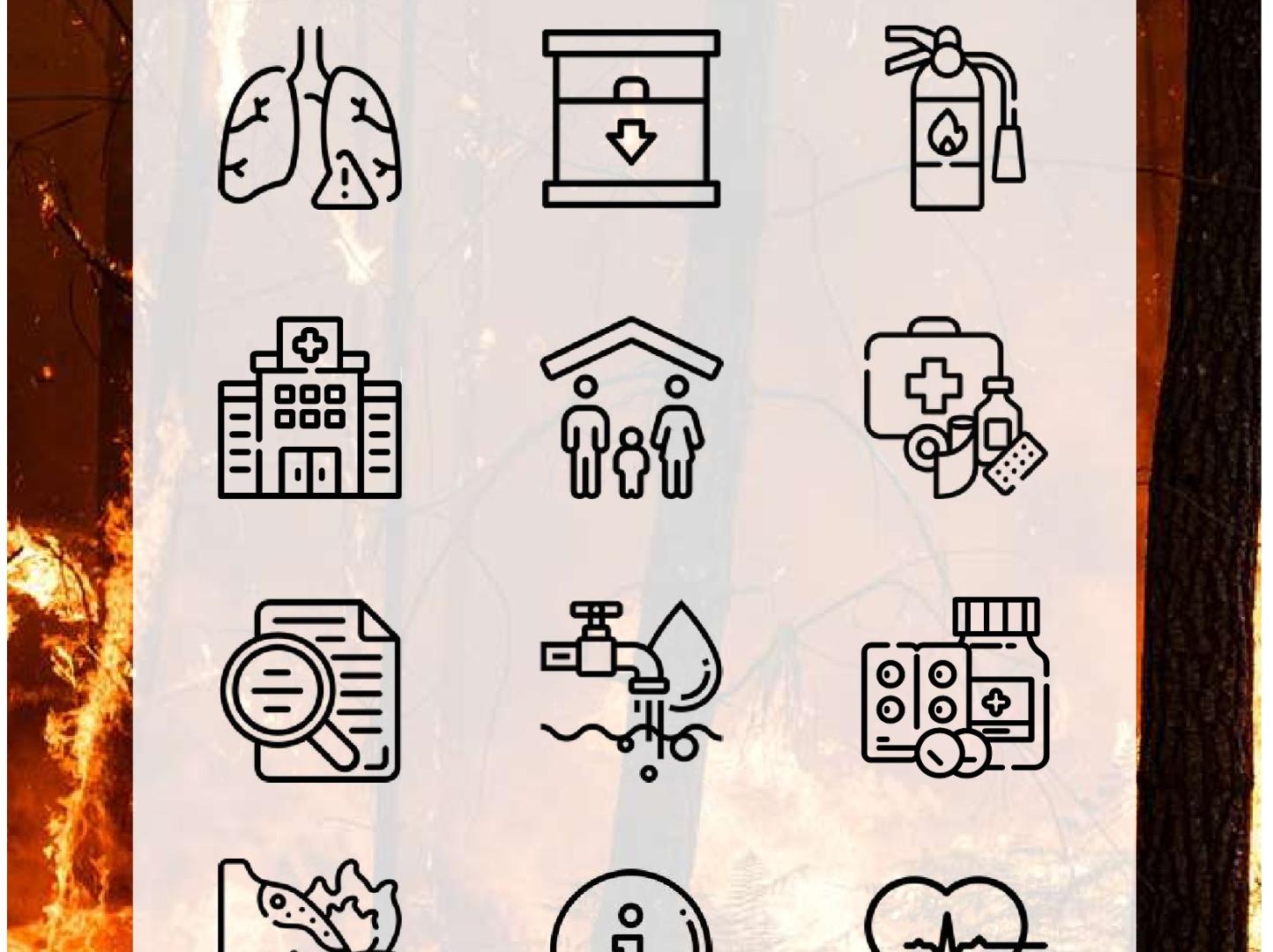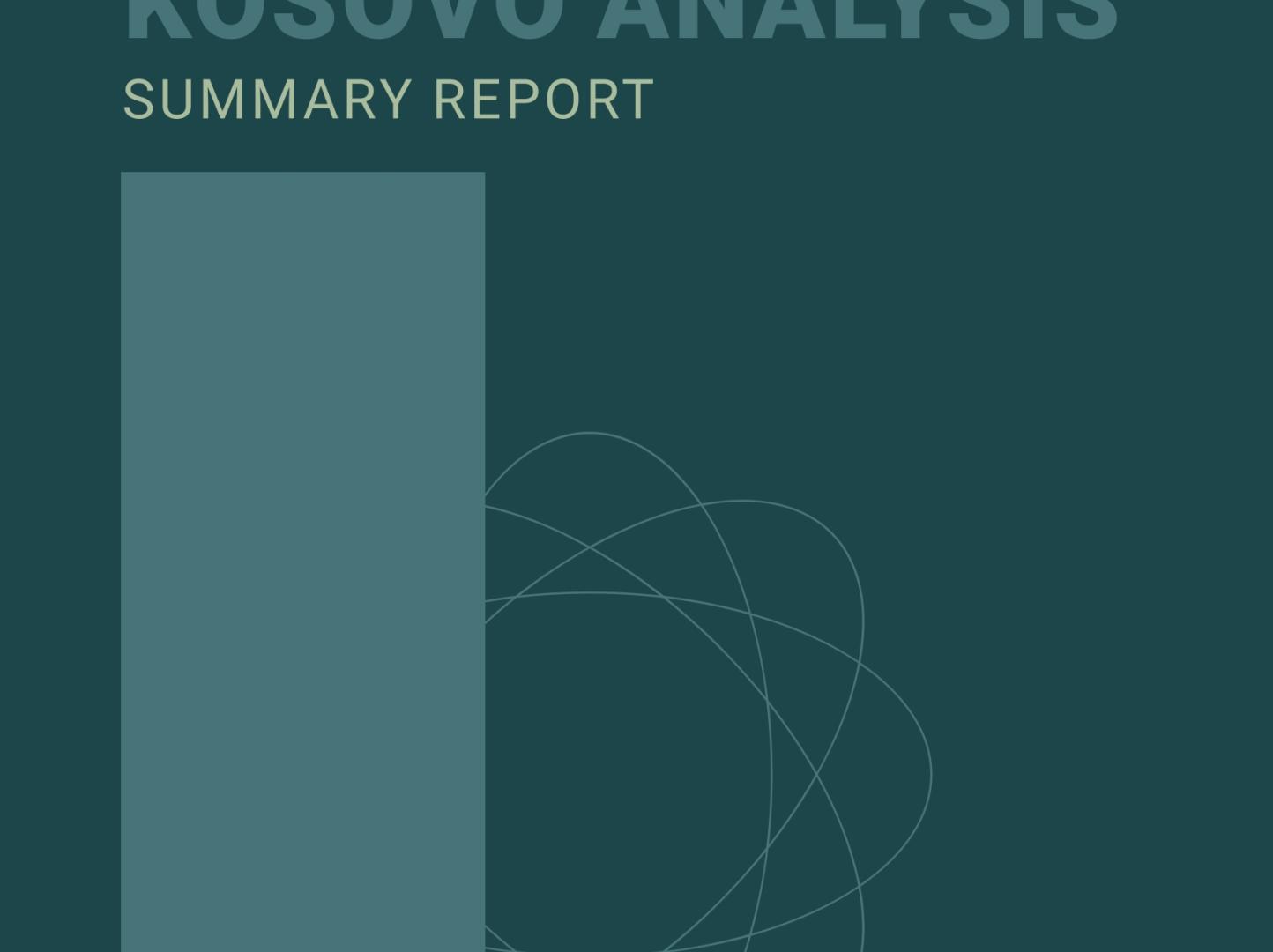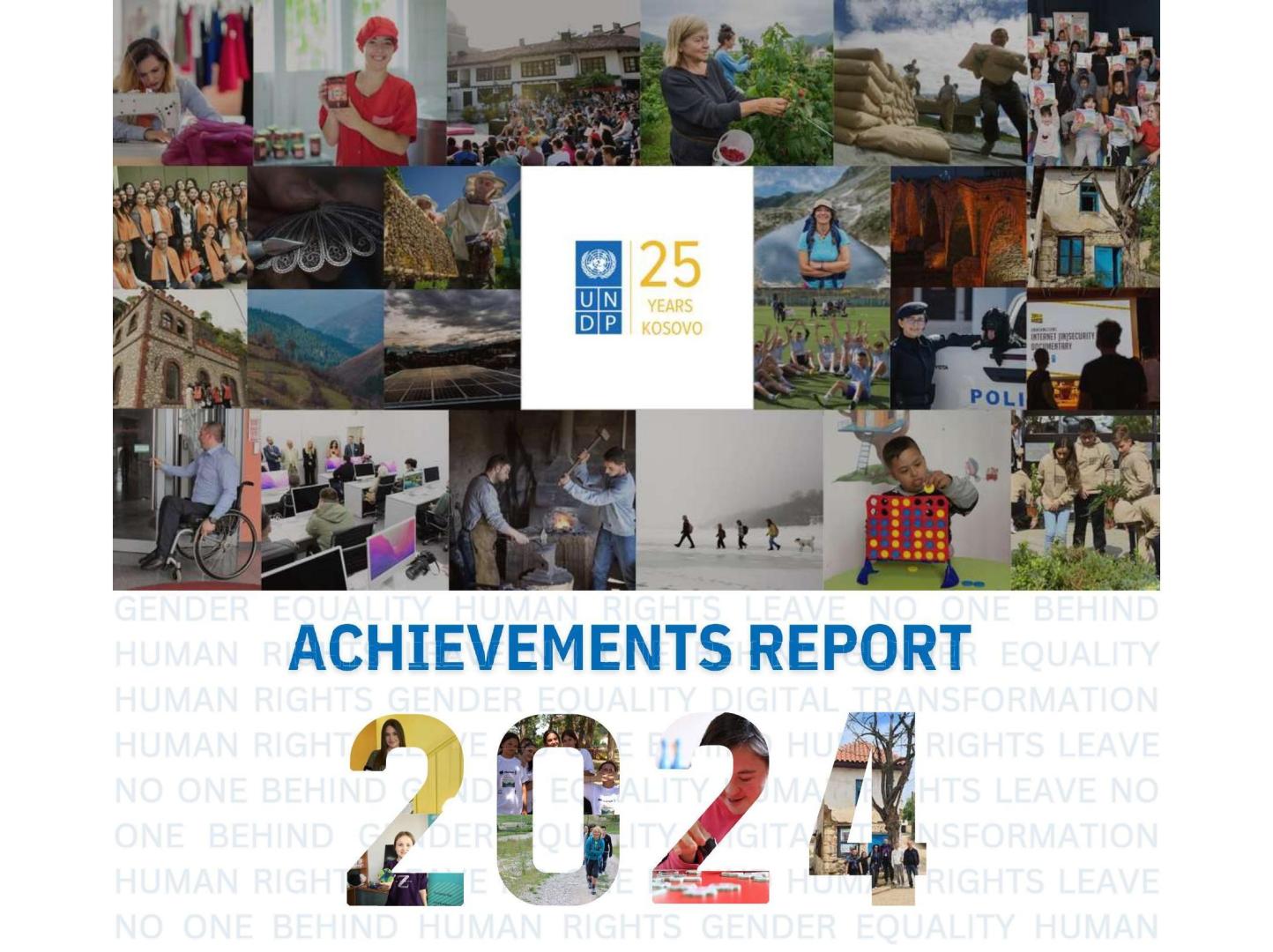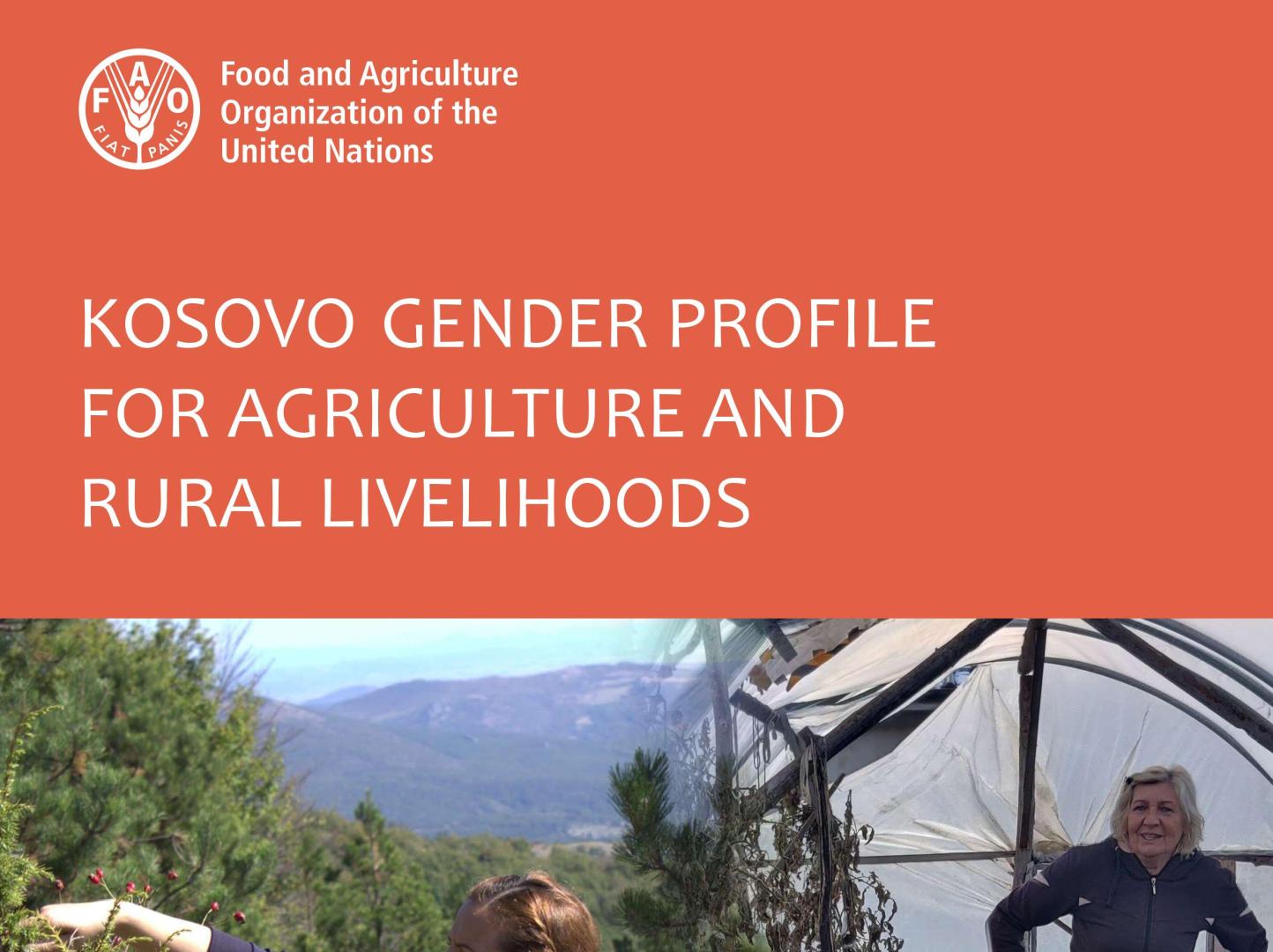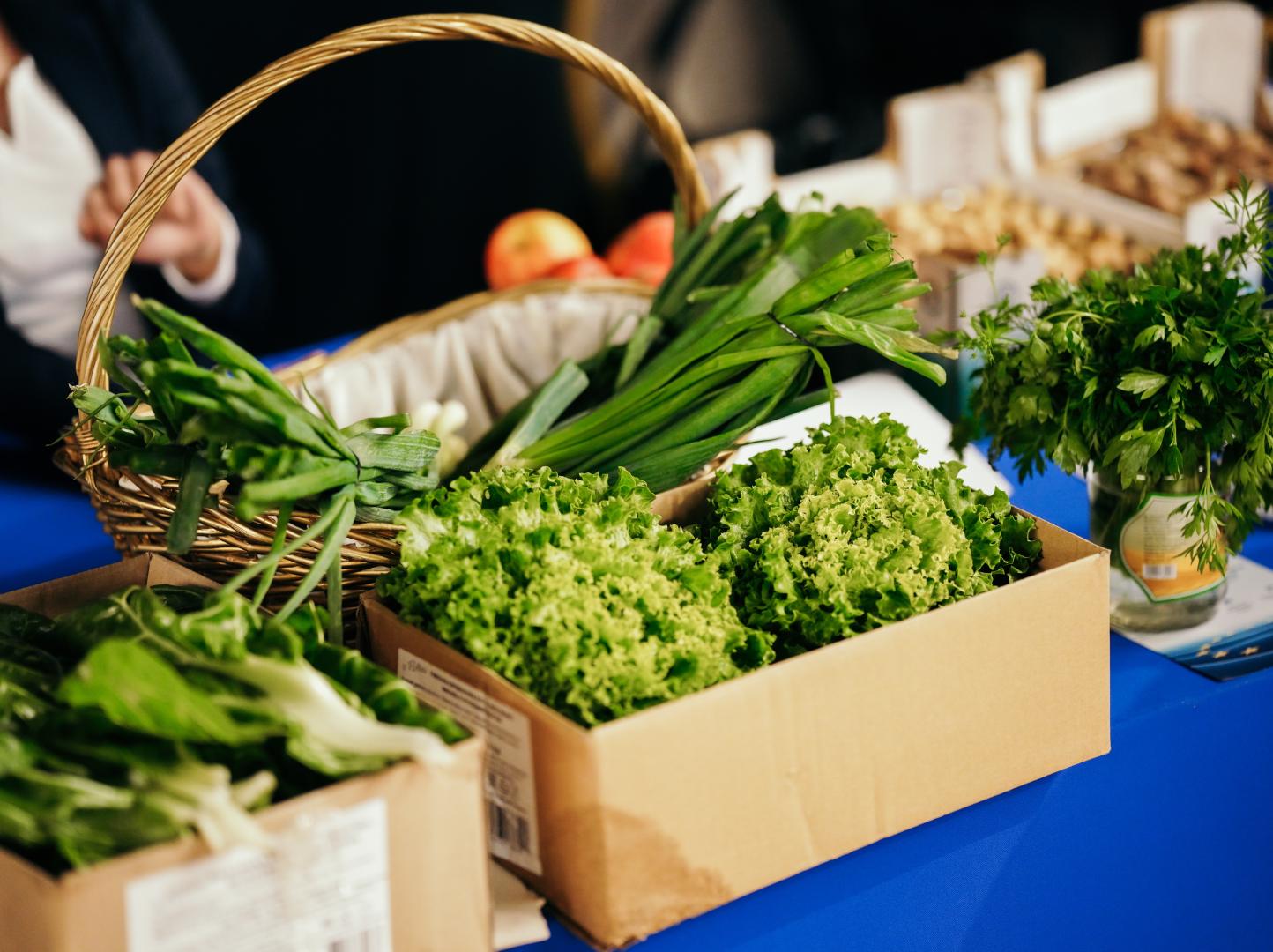Latest
Story
11 February 2026
Responsible Business Driving Sustainable Progress in Kosovo
Learn more
Story
04 February 2026
Visa-Free Travel Awareness Reaches Wider Audiences Through Strategic Timing
Learn more
Video
10 December 2025
Youth Creativity Driving Dialogue: DokuFest Showcases Documentary Filmmaking for Peacebuilding
Learn more
Latest
The Sustainable Development Goals in Kosovo
The Sustainable Development Goals are a global call to action to end poverty, protect the earth’s environment and climate, and ensure that people everywhere can enjoy peace and prosperity. These are the goals the UN is working on in Kosovo:
Publication
20 February 2026
The UNDP 2025 Achievements Report
During the year, efforts focused on strengthening transparency, accountability, and access to justice through large-scale court digitization, expanded free legal aid, and reinforced anti-corruption measures. Public safety was enhanced through the destruction of illicit small arms, improved forensic and investigative capacities, and the launch of the first police e-Learning platform.Investments in digital innovation modernized schools and municipal services, while cultural heritage restoration and support to creative industries contributed to economic opportunities and social cohesion. Youth empowerment initiatives, gender-responsive programming, and targeted support for survivors of conflict-related sexual violence reaffirmed a strong commitment to human rights and inclusion.On climate action, key milestones included the advancement of monitoring and verification systems, adoption of adaptation planning frameworks, and the expansion of energy-efficiency measures for households and small and medium enterprises — laying foundations for a greener and more resilient future.Guided by the principle of Leaving No One Behind, UNDP continues to work in partnership with institutions, civil society, communities, and development partners to ensure sustainable development delivers tangible results for people across Kosovo.
1 of 4

Publication
07 April 2025
WORLD HEALTH DAY 2025 – ‘HEALTHY BEGINNINGS, HOPEFUL FUTURES’
2025 World Health Day moto is” Healthy Beginnings, Hopeful futures”. This year’s campaign supports efforts on raising awareness about the importance of good health for both the pregnant woman and the fetus from the moment of conception.Despite substantial global progress, there are millions of women and girls worldwide who continue to lack essential, lifesaving services, particularly during labor and in the first 24 hours post-delivery. In an interview to RTK, WHO called for putting to an end maternal and infant deaths. “Strengthened primary health care systems is required to ensure universal access to sexual and reproductive health services, and remove systemic barriers,” said Dr Isme Humolli, Public Health Office at WHO Office, Pristina. A new inter-agency report led by WHO reveals that while global maternal mortality has decreased by 40% since 2000—falling from 446,000 to an estimated 260,000 deaths in 2023—progress remains uneven and insufficient to meet the SDG target of reducing maternal mortality to below 70 per 100,000 live births by 2030. The vast majority of maternal deaths is driven by limited access to quality care, inequities, and systemic barriers. The report emphasizes the growing impact of noncommunicable diseases, social determinants, and harmful gender norms on maternal health.Full report can be found hereThe report was produced by WHO on behalf of the United Nations Maternal Mortality Estimation Inter-Agency Group comprising WHO, UNICEF, UNFPA, the World Bank Group and the Population Division of the United Nations Department of Economic and Social Affairs.Aid cuts threaten fragile progress in ending maternal deaths, UN agencies warn Abbreviated version as well as main messages can be downloaded this page below, as well as main messages on World Health Day by WHO.Key messages We can end preventable maternal and newborn deaths. WHO is calling for a region-wide re-invigoration of efforts to ensure access to high quality care for women and babies, especially in those countries where most maternal and newborn deaths occur. Beyond survival, critical investment is needed to improve women’s longer-term health and well-being. Women everywhere need access to health providers who listen to their concerns and meet their needs – including in the months after birth when millions still lack critical support.Better maternal health means improving access to sexual and reproductive health services so that women can plan their lives and protect their health. Agency and empowerment for women and girls is fundamental for tackling both maternal and newborn deaths and achieving health for all. Statement – Every mother’s life mattersFind social media tiles with WHO messages here if you want to join us in the campaign LINK
1 of 4
Press Release
14 March 2025
Sweden and ILO Sign an Agreement to Enhance Labour Inspectorate Efficiency, Improve Working Conditions, and Drive Productivity for SME Workers.
Despite Kosovo’s steady GDP growth over the past decade, formal employment opportunities remain limited—especially for women and young people. Many job seekers face barriers such as low wages, poor working conditions, and a lack of skills development, while employers struggle to find qualified workers, exacerbating labour shortages in key industries. To address these issues, this initiative takes a two-pronged approach: Enhancing Labour Law Compliance – Strengthening the capacities of the Labour Inspectorate including its digital transformation and social partners to improve workplace safety and health and uphold labour rights.Supporting SMEs for Sustainable Growth – Delivering tailored guidance and training to help enterprises improve working conditions, enhance employee performance, implement sustainable and digital solutions, increase productivity in SMEs, and strengthen their integration into global supply chains. This initiative builds on the ongoing support of Sweden and the ILO and aligns with Kosovo’s broader economic and social development goals. By investing in workplace safety, labour law enforcement, and private sector development, the program aims to create better job opportunities, enhance enterprise productivity, and foster a more competitive labour market.
1 of 4
Story
04 February 2026
Visa-Free Travel Awareness Reaches Wider Audiences Through Strategic Timing
A new public service announcement (PSA) on visa-free travel to the Schengen Area has reached wide audiences across Kosovo, demonstrating how strategic timing can significantly enhance the visibility and impact of public information campaigns.The awareness video, produced by International Organization for Migration with the support of the Swiss Embassy, has been broadcast repeatedly on Radio Television of Kosovo since early January. The PSA provides clear and accessible information on visa-free travel rules, responsibilities, and safe travel practices related to the Schengen Area.Promoting the campaign in January proved particularly effective. Traditionally a period with limited public communication activity, the early-year timing allowed the message to stand out, face minimal competition for public attention, and achieve stronger recall among viewers. This approach helped ensure that essential information reached residents at a moment when communication “noise” is comparatively low.The video has been made available in several language versions including English, Albanian and Serbian, supporting inclusive outreach and ensuring that information is accessible to diverse communities. By focusing on practical guidance and responsible travel behavior, the PSA contributes to informed decision-making and helps manage expectations related to visa-free movement.The initiative highlights the importance of aligning communication strategies for development with broader information environments. Strategic scheduling, combined with clear messaging and trusted broadcast channels, can significantly enhance public understanding of complex policy changes and promote safe, well-informed mobility.Watch full video by clicking below:
1 of 4

Story
11 February 2026
Responsible Business Driving Sustainable Progress in Kosovo
The event underscored the strategic role of the private sector in advancing the Sustainable Development Goals (SDGs) and supporting the green and inclusive transition. Remarks were delivered by Mr. Stephen O’Malley, United Nations Development Coordinator in Kosovo; Mr. Hubert Perr, Head of Cooperation at the European Union Office in Kosovo; and Mr. Getoar Mjeku, Acting Deputy Minister Economy. In his address, Mr. O’Malley emphasized the importance of corporate sustainability:“Corporate sustainability is more than a ‘nice to have’. It is about competitiveness, resilience, and trust.”He highlighted that responsible business practices—grounded in human rights, inclusion, environmental sustainability, and transparency—are essential to accelerating progress and strengthening resilience. In her opening remarks, Ms. Zana Bajrami Rama, Executive Director of the Kosovo CSR Network, reflected on the growing engagement of the private sector in sustainability, noting the increasing integration of long-term environmental and social considerations into business strategies. A notable moment of the evening was the presentation of the CSR Appreciation Award to His Excellency Eric Dietz, Chargé d’Affaires a.i. of the Embassy of the Grand Duchy of Luxembourg in Kosovo, in recognition of his support for sustainable development and contributions to advancing the green transition.Awards were presented in three main categories:Business Leadership in the Green TransitionPrishtina International Airport, for progress toward carbon neutrality and measurable climate action.UNISOLAR L.L.C., for expanding access to renewable energy solutions and contributing to emissions reduction efforts.Social Impact and InclusionTEB Sh.A., for advancing gender equality, financial inclusion, and community well-being.Kosovo Energy Supply Company (KESCO), for promoting inclusive workplace practices and investing in community development.Excellence in Sustainability IntegrationTITAN Sharrcem, for integrating environmental, social, and governance (ESG) considerations across its operations and strategy.Kosovo Energy Distribution Company (KEDS), for embedding sustainability into operational performance, workforce development, and structured ESG reporting.Watch full event Partnership for Sustainable DevelopmentThe Kosovo CSR Network is a valued partner of several United Nations agencies, collaborating with UN Women, UNDP, UNICEF, and UNFPA across areas including gender equality, youth empowerment, social inclusion, responsible business conduct, and environmental sustainability. Through these partnerships, the private sector contributes to advancing human capital development, inclusive economic growth, and climate resilience.As the Kosovo partner of CSR Europe, the Kosovo CSR Network connects local businesses with European and global sustainability frameworks. Through cooperation with institutions, development partners, and civil society, it supports alignment with the 2030 Agenda for Sustainable Development and the European Green Agenda.The Annual CSR Awards reaffirm the importance of partnerships in translating sustainability commitments into measurable results. Achieving the SDGs requires coordinated efforts across sectors, with the private sector playing a critical role as an employer, investor, innovator, and partner in solutions.The United Nations in Kosovo remains committed to strengthening collaboration with responsible businesses and business networks to advance sustainable development outcomes for people, communities, and future generations.
1 of 5

Story
25 November 2025
UN Kosovo -16 Days events
The 16 Days of Activism against Gender-Based Violence is an annual global campaign that calls for coordinated action to prevent and respond to all forms of gender-based violence. It begins each year on 25 November, the International Day for the Elimination of Violence against Women, and concludes on 10 December, Human Rights Day. The campaign promotes awareness, advocacy, and engagement across communities, institutions, and partners. Following is the vents Calendar of events in Kosovo: [powerbi:https://data.uninfo.org/Home/_Kosovo_16Days_Calendar] This calendar presents activities facilitated by the United Nations in Kosovo, either directly or through partnerships. It can be viewed in English, Albanian, and Serbian. The calendar is a living document and will be updated daily throughout the 16 Days. For participation or additional information, please contact the designated focal points listed.Additionally, you may reach out to us in case any information appears to be missing or requires clarification.
1 of 5

Story
20 November 2025
30 Years of UNICEF Engagement in Kosovo: A Journey of Partnership, Progress and Possibility
Three decades of working side by side with local institutions, communities, development partners, and young people to uphold the rights and well-being of every child. To commemorate this milestone, UNICEF hosted a special event with members of the diplomatic missions in Kosovo, representatives of development organizations, sisterly UN entities community partners, young innovators, and leadership. Head of UNICEF Office Ms. Veronika Vashchenko in her opening address said: “This anniversary is a tribute to every child, young person, parent, teacher, nurse, social worker and partner who has carried forward UNICEF’s mission. As the world faces multiple crises, our commitment must be stronger than ever. Every child deserves to survive, learn, and thrive.”Honouring the Beginnings: Reflections from 1995 A special guest of honour, Flaka Surroi, the first UNICEF representative to open the UNICEF office in Pristina in 1995 and now the head of the independent Koha media group, shared powerful reflections on the early days of UNICEF’s work amid a deeply challenging context. Her personal stories recalled a period marked by uncertainty, limited access to essential services, and widespread hardship. Yet her message was one of determination and hope—highlighting how, despite obstacles, the commitment to protect children and support communities has remained unwavering.Her remarks underscored a simple truth: progress is possible when people come together with purpose.Celebrating Transformative JourneysA central part of the event was a video showcasing partners, families, youth, educators, and community leaders whose experiences reflect the impact of UNICEF’s work over the past 30 years. These testimonies illustrated how sustained collaboration can create lasting change—whether through strengthened health and education systems, expanded access to early childhood development, improved child protection services, or youth empowerment programmes. Among those attending were inspiring young changemakers, including Mr. Seyjnur Veshal, from Roma community, once a Deputy Minister of Culture, Youth and Sports, whose own journey in social activism began with UPSHIFT, UNICEF’s signature programme designed to empower adolescents to turn challenges in their communities into innovative solutions. Partners United for ChildrenSpeakers emphasized that every accomplishment—from essential service provision to digital transformation initiatives, inclusive education reforms, social protection strengthening, and youth engagement—has been made possible through joint efforts rooted in trust and shared responsibility. A dedicated nurse from the home-visiting programme, Shemsije Mehmeti, highlighted how field visits help identify cases that might otherwise remain unseen. She explained that early outreach allows for timely recognition of developmental challenges, health needs, or social vulnerabilities—ensuring that children receive the earliest possible support to grow, thrive, and fully realise their potential.Rijad Mehmeti’s was very emotional, so his best firned helped reading the speech. Collaboration with UNICEF to promote the rights and inclusion of persons with disabilities transformed his own journey as a young person with a disability. He emphasized that engaging in advocacy strengthened his confidence, expanded his opportunities, and reinforced the message that every individual can contribute meaningfully when barriers are removed and support systems are inclusive. Three Decades of ImpactOver the past 30 years, UNICEF’s engagement has supported:Expanded access to quality pre-primary and basic educationStrengthened early childhood development frameworksImproved maternal, newborn, and adolescent health servicesProtection programmes for every child, with a strong focus on prevention and response to violenceSocial inclusion initiatives advancing the rights of children with disabilitiesYouth innovation, participation, and skills development through platforms such as UPSHIFTEmergency preparedness and response systems centered on children and vulnerable groupsThese achievements illustrate a long-standing commitment to ensuring that every girl and boy grow up safe, healthy, and able to reach their potential.For more see LinkLooking AheadAs UNICEF marks its 30th anniversary of presence in Kosovo, the focus remains firmly on the future—on building societies where children’s rights are fully realized, where institutions are strengthened, and where young people are empowered as active contributors to development.UNICEF Press release.
1 of 5

Story
12 November 2025
UN Kosovo team 16 Days of Activism UN Kosovo Team – 16 Days of Activism: Advancing Safety, Dignity and Equality for All
During the global “16 Days of Activism against Gender-Based Violence,” the UN Kosovo Team and its partners are joining efforts to advance the right of every person to live free from violence. Through coordinated advocacy, outreach, and community engagement, UN entities across the territory are supporting a series of actions designed to empower survivors, strengthen prevention, and reinforce inclusive services.This year’s programme brings together initiatives led or directly supported by UN Women, UNFPA, UNICEF, UNDP, UNHCR, UN-Habitat, IOM, and the Office of the UN Development Coordinator. Activities highlight multisector involvement, with a particular focus on youth empowerment, safe public spaces, community dialogue, and strengthened institutional responses in line with international human rights standards.The live calendar below provides an overview of the confirmed events facilitated or co-facilitated by the UN system throughout the 16-day campaign. Each activity aims to promote awareness, broaden outreach, and encourage collective action to end all forms of gender-based violence.
1 of 5

Story
17 October 2025
From Struggle to Stability: Faton’s Path to Independence
Sparks scatter across the concrete floor as Faton Behluli, a 35-year-old craftsman from the Ashkali community, shapes metal into something new — strong, useful, and full of purpose. “I used to do manual work for others,” he says, setting down his tools for a moment. “It was exhausting — both physically and mentally. Today, I have my own workspace, my own equipment, and peace of mind knowing that my work sustains my family.”For years, Faton worked wherever he could find a job — in construction sites, repairing doors, or helping neighbors with small metalwork tasks. Despite his skill, the lack of proper tools kept him from moving forward. “A craftsman without tools is like having hands you can’t use,” he says.Everything changed when he was selected as a beneficiary of the Community Stabilization Programme (CSP), implemented by the International Organization for Migration (IOM) and funded by the European Union, in cooperation with the Ministry of Communities and Return.Through the programme, Faton received the essential equipment he had long needed — a welding machine and metal processing tools and equipment. With this support, he was finally able to open his own small garage, transforming his skills into a stable livelihood. “These tools changed everything,” he says with a proud smile. “Before, I depended on others. Now, I have my own workshop. I can plan my day, manage my work, and provide for my family without worrying about tomorrow.”Each day, Faton puts his equipment to use — welding, fixing, and creating. He has even started working occasionally with his cousins, offering them small paid jobs. “We’re continuing the trade passed down from our fathers and grandfathers,” he says. “When we work together, we’re not just earning; we’re keeping a tradition alive.”Looking ahead, Faton hopes to expand his business and acquire more professional machines so he can employ others on a regular basis. “Many young people want to work but don’t have the means,” he explains. “With the right tools, everything is possible.” For Faton, the support meant more than just new equipment — it gave him a renewed sense of dignity and control over his life. “Without this help, it would have been much harder,” he admits. “Now I can provide for my family, stay organized, and live without fear of what tomorrow brings.”Through the EU-funded Community Stabilisation Programme (CSP), IOM has helped individuals like Faton turn their skills into sustainable livelihoods — empowering families and strengthening communities across Kosovo.Story also published at IOM Kosovo site LINK
1 of 5
Press Release
26 November 2025
Taste the Future: HoReCa & Slow Food Connections
The event builds on Kosovo’s growing potential in adventure, rural, and culinary tourism and introduces the Slow Food concept as a model for innovation, sustainability, and local economic development. The initiative aims to motivate young people, strengthen vocational education and training providers, and inspire small businesses to enhance their offer in the tourism and hospitality sector through creativity, authenticity, and quality.A Day of Dialogue, Demonstrations, and CollaborationThe programme begins at 10:00 with opening remarks from the Ambassador of Italy, the UN Development Coordinator, representatives of AICS, the Ministry of Education, Science, Technology and Innovation (MESTI), and the Employment Agency of the Republic of Kosovo (EARK).A high-level panel discussion will follow, focusing on tradition, sustainability, and innovation in the HoReCa sector. Panellists will discuss the role of the Slow Food concept in shaping a more competitive and sustainable hospitality sector in Kosovo.Throughout the day, participants will enjoy live culinary demonstrations delivered by students from vocational education schools, vocational training centres, and members of Slow Food Dukagjini. Two demonstration sessions will offer a variety of dishes, desserts, and beverages prepared on-site, showcasing the creativity and talent of Kosovo’s new generation of HoReCa professionals.Later, a dedicated Career Opportunities Session will connect local businesses with Career Centres in vocational schools and employment offices, helping to strengthen the link between education and real employment and training opportunities.Promoting Innovation and Youth SkillsBy introducing Slow Food principles, the event aims to promote sustainability, support local producers, and stimulate new business models within the hospitality and tourism sector.More than 40 students will present their skills throughout the day, demonstrating the project’s commitment to empowering young people and strengthening the vocational education and training system.About the HoReCa ProjectThe HoReCa Project—funded by the Government of Italy through AICS and implemented by the International Labour Organization—supports the labour market integration of young people in the hospitality sector through skills development, capacity building of training providers, and enhanced cooperation between public institutions, employers, and development partners.
1 of 5
Press Release
19 November 2025
Center for Capacity Building in Forestry Inaugurated with EU and Sweden Support
The Center will serve as a hub for capacity building and knowledge enhancement, helping to develop technical skills in forest planning and monitoring, integrated forest fire management, digitization of forest information and data, as well as in many other important areas for the sustainable management of forest resources. The Center was renovated under the Programme “Support to strengthening sustainable and multipurpose forest management to improve rural livelihoods and address climate change in Kosovo,” funded by the European Union and the Embassy of Sweden and implemented by the Food and Agriculture Organization of the United Nations (FAO). The Programme aims to enhance the forestry sector’s contribution to Kosovo’s sustainable development through improved governance, participatory management, and value chain development benefiting rural communities.During the ceremony, eight field vehicles and a second batch of handheld equipment – including Geo Vertexes, diameter measuring tools, compasses, and forest fire management equipment – were handed over to the Kosovo Forestry Agency (KFA). These resources, funded by the EU and the Embassy of Sweden, will strengthen the operational and technical capacities of the KFA for more effective and sustainable forest management.The event brought together representatives from the European Union in Kosovo, the Embassy of Sweden, the Ministry of Agriculture, Forestry and Rural Development (MAFRD), the Kosovo Forestry Agency, FAO, media, and invited guests.Hubert Perr, Head of Cooperation at the European Union in Kosovo, stated: “Forests are an important natural resource in Kosovo. With this new Center and the equipment we are handing over today, we are investing in the people who protect these landscapes for generations to come.”Henrik Riby, Deputy Head of Mission/Head of Development Cooperation at the Embassy of Sweden in Pristina, added: “Together with the EU, we have invested EUR 2.5 million through FAO to support reforms, training, forest inventories, and equipment. These resources provide a strong foundation for Kosovo’s forests, though continued political commitment and active civil society engagement are essential.”Naser Krasniqi, Local Team Leader at FAO, noted that the equipment batch has a total value of around EUR 300,000, mostly funded by the EU. “FAO has organized training for KFA units, certifying trainers to continue capacity-building sessions on integrated forest fire management and supporting volunteers in prevention and suppression activities” said Krasniqi.Lazar Radulović, Deputy Minister at MAFRD, expressed gratitude to donors and FAO: “MAFRD remains committed to the development of the forestry sector. The new facilities, vehicles, and equipment will support professional duties and sustainable forest management across Kosovo.”The Blinaja/Lipovica Center for Capacity Building will continue to serve as a platform for training, collaboration, and innovation, supporting forestry professionals and local communities in protecting Kosovo’s forests and advancing sustainable rural development.
1 of 5
Press Release
24 October 2025
UN Turns 80: “Reaffirming the UN commitment to serve all communities in Kosovo”
Amid serious present-day challenges being faced by the world, there is no other global organization with legitimacy, convening power and normative impact of the United Nations. No other global body gives hope to so many people for a better world and can deliver the future we want. Today, October 24, is United Nations Day, commemorating the anniversary of the UN Charter’s entry into force in 1945. Signed and ratified by all UN Member States, it calls on nations to “practice tolerance and live together in peace… and to unite our strength to maintain international peace and security” as well as to promote “economic and social advancement of all peoples”.“Today, like every other day, we reflect on the power of those words, which continues to guide the work of the United Nations for the last 80 years. UNMIK has a long and significant presence in Kosovo, which is deeply tied to its past and present. While much has changed, our commitment to serving all communities in Kosovo remains steadfast,” Deputy Special Representative of the Secretary-General and Officer-in-Charge of UNMIK Milbert Dongjoon Shin said. He acknowledged the current financial challenges facing the UN due to global funding shortfalls but affirmed UNMIK’s continued support to the people and institutions of Kosovo in building trust, providing political analysis and reporting to UN Member States, exercising residual interim administration functions and offering good offices. The United Nations Kosovo Team, comprising 18 agencies, funds and programmes, supports projects and initiatives that advance the Sustainable Development Goals and improve lives across all communities. United Nations Development Coordinator in Kosovo Stephen O’Malley said today marks a moment to look back on eight decades of progress while preparing for the future:“We are entering a new era with new challenges; the lessons from 80 years ago remain valid and important, but we also need to refocus – both as an organization and as communities - on today's very real challenges in order to build resilient and prosperous societies.” United Nations Secretary-General Antonio Guterres reflected on the challenges ahead and the “living promise” the organization represents. “This is no time for timidity or retreat. Now, more than ever, the world must recommit to solving problems no nation can solve alone. On this UN Day, let’s stand together and fulfil the extraordinary promise of your United Nations.” A photo highlighting work being done in Kosovo, supported by UNMIK, is part of a global photography exhibition highlighting the United Nations at 80, called “Shared Lives, Shared Future”, which features more than 200 photos and stories from around the world.
1 of 5
Press Release
22 July 2025
OP-ED: “A MOMENT OF OPPORTUNITY: SUPERCHARGING THE CLEAN ENERGY AGE” By António Guterres, Secretary-General of the United Nations
Today, we’re at the dawn of a new era. The sun is rising on a clean energy age. Last year, nearly all new power capacity came from renewables. Investment in clean energy soared to $2 trillion – $800 billion more than fossil fuels. Solar and wind are now the cheapest sources of power on Earth, and clean energy sectors are creating jobs, boosting growth and powering progress -- despite fossil fuels still receiving far greater subsidies.Countries that cling to fossil fuels are not protecting their economies, they are sabotaging them – undermining competitiveness, and missing the greatest economic opportunity of the 21st century. Clean energy also delivers energy sovereignty and security. Fossil fuel markets are at the mercy of price shocks, supply disruptions, and geopolitical turmoil, as we saw when Russia invaded Ukraine. But there are no price spikes for sunlight, no embargoes on wind, and almost every nation has enough renewable resources to be energy self-sufficient.Finally, clean energy spurs development. It can reach the hundreds of millions of people still living without electricity -- quickly, affordably and sustainably, particularly through off-grid and small-scale solar technologies.All this makes the clean energy era unstoppable. But the transition is not yet fast or fair enough. Developing countries are being left behind. Fossil fuels still dominate energy systems, and emissions are still rising when they must plummet to avoid the worst of the climate crisis. To fix this, we need action on six fronts. First, governments must fully commit to the clean energy future. In the coming months, every country has pledged to submit new national climate plans – known as Nationally Determined Contributions – with targets for the next decade. These plans must align with limiting global temperature rise to 1.5 degrees Celsius, cover all emissions and sectors, and lay out a clear path to clean energy. G20 countries, responsible for around 80% of global emissions, must lead.Second, we must build 21st century energy systems. Without modern grids and storage, renewable power can’t fulfill its potential. But for every dollar invested in renewable power, just 60 cents go to grids and storage. That ratio needs to be one- to-one. Third, governments must aim to meet the world’s surging energy demand with renewables. Major tech companies must also play their part. By 2030, data centres could consume as much electricity as Japan does today. Companies should commit to power them with renewables. Fourth, we must embed justice in the energy transition. This means supporting communities still dependent on fossil fuels to prepare for the clean energy future. And it means reforming critical minerals supply chains. Today, they’re riddled with rights abuses and environmental destruction, and developing countries are trapped at the bottom of value chains. This must end. Fifth, we must make trade a tool for energy transformation. Clean energy supply chains are highly concentrated and global trade is fragmenting. Countries committed to the new energy era must work to diversify supplies, cut tariffs on clean energy goods, and modernize investment treaties so they support the transition. Sixth and finally, we must drive finance to developing countries. Africa received just two percent of renewables investment last year, despite having 60% of the world’s best solar resources. We need international action – to prevent debt repayments sucking developing country budgets dry, and to enable multilateral development banks to substantially increase their lending capacity, and leverage far more private finance. We also need credit rating agencies and investors to modernise risk assessments, to account for the promise of clean energy, the cost of climate chaos, and the danger of stranded fossil fuel assets. A new energy era is within reach – an era where cheap, clean abundant energy powers a world rich in economic opportunity, where nations have the security of energy autonomy, and the gift of electricity is a gift for all. This is our moment of opportunity to supercharge the global shift. Let’s seize it.
1 of 5
Press Release
20 June 2025
Statement: High Commissioner Filippo Grandi’s message on World Refugee Day 2025
Record numbers of men, women and children – over 122 million people worldwide – have been uprooted from their homes, but their ability to find safety and support is threatened as never before. The abject failure to end conflicts – from Sudan to Ukraine, from the Democratic Republic of the Congo to Gaza – continues to create untold human suffering. Yet the innocent people who run for their lives as the bullets fly and the missiles rain down are unjustly stigmatized, making it harder to escape danger and to find somewhere to recover and rebuild.To make a desperate position worse, brutal cuts to humanitarian aid are choking off assistance, threatening the lives of millions of people who desperately need help.At this critical juncture, it is vital that we reaffirm our solidarity with refugees – not just with words but with urgent action. Thankfully, there is no shortage of examples to inspire us: the countries on the edges of war zones that continue to welcome and host refugees; the local communities that open their homes, workplaces and hearts to displaced people; and the countless individual acts of kindness and compassion that reveal our common humanity. In many cases, this support can be found among people with few resources to share, and in places facing major economic challenges. From wealthier states to development banks to businesses and many others, we can and must support these countries and communities by sharing the responsibility for protecting refugees. Such acts of solidarity would enable this generosity to continue.Even in these turbulent times, there are moments of profound hope. This World Refugee Day, I am in Syria where, after 14 years of crisis and despair, two million people have already chosen to return to their homes and communities since the fall of the Assad regime last December. In a region that has suffered so much violence – and suffers even now – we are nonetheless presented with an opportunity to help Syrians achieve stability and prosperity. We must not let it pass by.Today, I met Syrian families who have returned after more than a decade as refugees. Their deep joy at being among familiar faces and surroundings – despite the many challenges – is a poignant reminder of the yearning refugees feel for home.Such moments are only made possible through solidarity: the solidarity shown by countries neighbouring Syria that provide a haven for people until they feel it is safe to return; the solidarity shown by Syrian communities who are welcoming their compatriots back after a long and painful absence; and the solidarity shown by my UNHCR colleagues and their local and international partners, who are here to support returning families and will remain by their side as they rebuild their homes and lives.Now more than ever, we must stand with refugees to keep alive their hopes of a better future. This World Refugee Day and every day, governments, institutions, companies and individuals can prove that by helping those caught up in senseless conflicts, we move towards greater stability, humanity and justice for us all. If we do so, I can promise you that refugees will bring all their courage, spirit and ingenuity to the task of creating a better, brighter tomorrow.
1 of 5
Latest Resources
1 / 11
1 / 11























